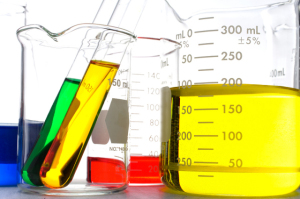by
Astrid Fiano, DOTmed News Writer | October 21, 2009

Balancing medical priorities
with national security safeguards
The House Energy and Environmental Subcommittee has passed the "American Medical Isotopes Production Act."
The Act was recently the subject of a Subcommittee hearing. (See DM 10258). The hearing considered concerns about current and anticipated shortages of molybdenum-99, and about highly enriched uranium being in use for medical isotope production, due to its possible use in nuclear weapons and explosives. The bill was amended by Chairman Markey (D-MA) with an amendment in the nature of the substitute. The bill will now go to the full Committee on Energy and Commerce for a vote.
In additional new findings, the amendment states that other important medical isotopes, including iodine-131 and xenon-133, can be produced as byproducts of the molybdenum-99 fission production process. These byproducts provide an important benefit of establishing molybdenum-99 production in the United States that should also be available for necessary medical uses.
Balancing Medical and Security Needs
The bill provides $163 million for the Secretary of Energy to support projects for the domestic production of molybdenum-99, without the use of highly enriched uranium. Projects will be selected by the Secretary of Energy based on three criteria: the length of time necessary for the proposed project to begin production of molybdenum-99 for medical uses within the United States; the capability of the proposed project to produce a significant percentage of United States demand for molybdenum-99 for medical uses; and the cost of the proposed project.
A new program would be established at the Department of Energy to make low enriched uranium available to domestic molybdenum-99 producers. The DOE will retain responsibility for the final disposition of radioactive waste created by the irradiation, processing, or purification of leased uranium.
The bill prohibits export of highly-enriched uranium from the United States for medical isotope production seven years after enactment of the Act.
The Nuclear Regulatory Commission will be allowed to issue a license for the use of highly enriched uranium as a target for medical isotope production if: there is no low-enriched uranium target that can be used in that reactor; the reactor operator has provided assurances to convert to the use of low-enriched uranium targets when able; and the reactor operator has provided a current report on the status of its efforts to convert the reactor to low-enriched uranium fuel, and an anticipated schedule for completion of conversion.
Finally, the bill requires annual reports from the Department of Energy for six years on the Department's actions and progress in supporting the production of molybdenum-99 in the United States, and a study by the National Academy of Sciences on the state of molybdenum-99 production and utilization, to be provided to Congress five years after enactment of the Act. The NAS study will assess progress made in the previous five years on establishing domestic production of molybdenum-99 for medical uses, including the extent to which other medical isotopes co-produced with molybdenum-99, such as iodine-131 and xenon-133, are being used for medical purposes.
The text of the bill can be accessed at: http://energycommerce.house.gov/index.php?option=com_content&view=article&id=1768:energy-and-commerce-subcommittee-markup&catid=139:subcommittee-on-energy-and-the-environment&Itemid=76
